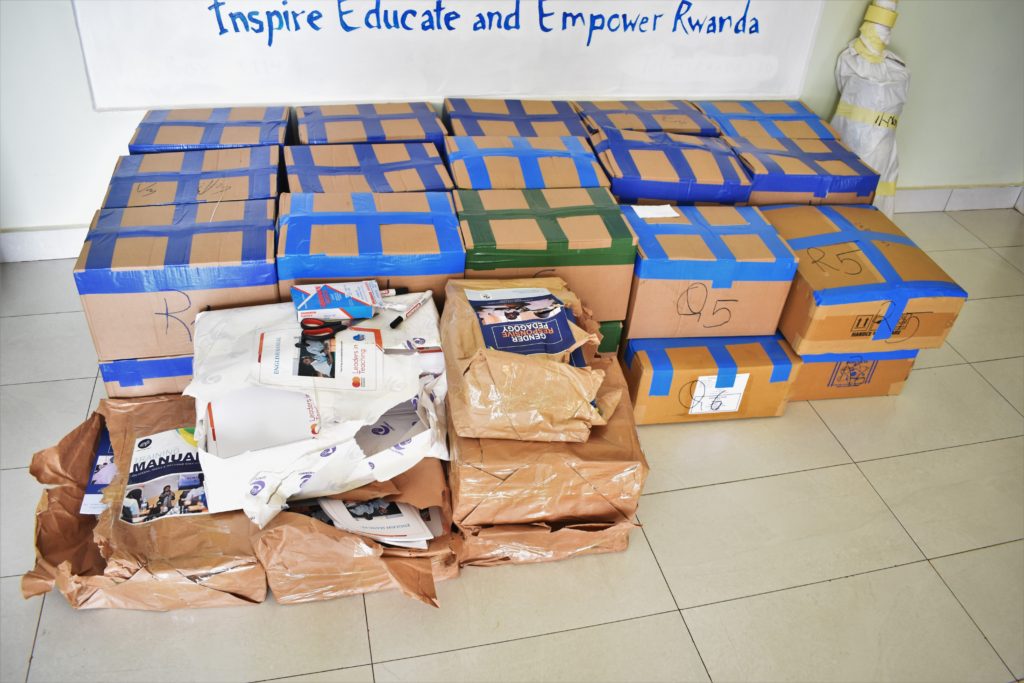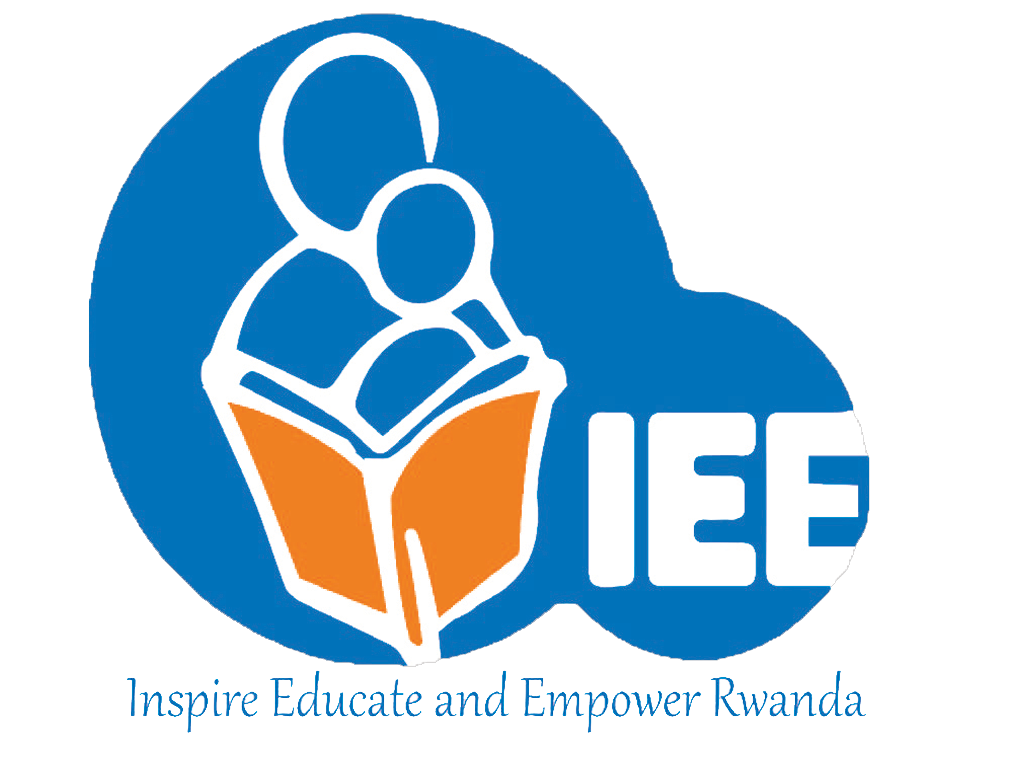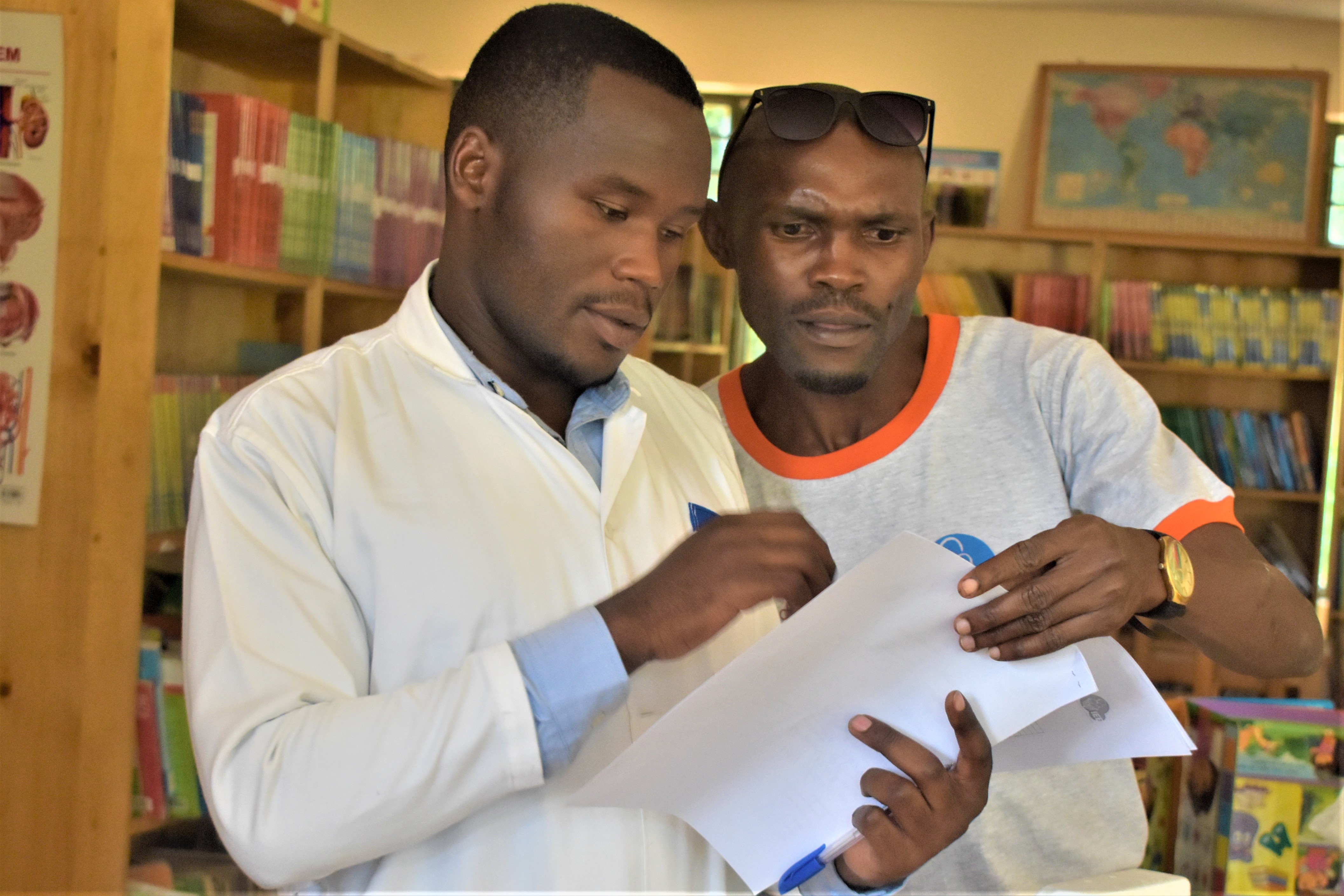Kigali- 3rd September 2019– Mastercard Foundation and IEE are aware of the importance the Ministry of Education is placing on the study of science, technology, engineering and mathematics across all levels of education in Rwanda. And through the Teaching Assistantships Project, we are committed to contributing to these efforts– Emmanuel Murenzi, Inspire, Educate and Empower Rwanda (IEE) Country Director.
The Teaching Assistantships Project is funded by Mastercard Foundation under its Leaders in Teaching (LIT) initiative in Rwanda. This pilot project is aimed at engaging a total of one hundred and fifty bright girls in their transitional year to tertiary education, as Teaching Assistants, supporting the learning of mathematics and science for six months, at seventy-five schools in fifteen districts in Rwanda. The project is part of Mastercard Foundation’s commitment to supporting livelihoods and opportunities for young people in Africa, particularly women, to secure dignified and fulfilling work by 2030. Particularly, under the “Recruit” pillar of the LIT initiative, Mastercard Foundation is supporting skill-nurturing, to attract passionate, young women with an interest in education to join the teaching profession.
Implemented by IEE, the Teaching Assistantships project is aimed at equipping the girls on the project with wholesome skill development, while training them on teaching methodology, English language for teaching and general communication, personal development, inclusion and gender. It is hoped that due to involvement in this project, the girls will be inspired to take up teaching careers or consider education as area of further academic study. This is in contribution to efforts of the Ministry of Education in Rwanda, of supporting the learning of Science, Technology Engineering and Maths (STEM) across basic and higher education levels.
A major component of the Teaching Assistantships Project is a supply-related one, where due to establishment that project intervention schools needed more science equipment to support the learning of STEM-related subjects, Mastercard Foundation committed to support provision of mathematics and science kits. During the month of July 2019, IEE delivered to all seventy-five schools, kits in which were embedded bunsen burners, burettes, convex and concave lenses, conical flasks, convex mirrors, copper calorimeter, Iodine crystal, iodine chloride, ferrous, lead carbonate, lead nitrate, and manganese dioxide among others. This is in complement to Ministry of Education aspiration in the 2018/19- 2014/25 Education Sector Strategic Plan, which explicitly has Strengthened science, technology, engineering and mathematics (STEM) across all levels of education in Rwanda to increase the relevance of education for urban and rural markets as its third strategic priority during this five-year period.

I would take students out in the kitchen and show them boiling water as a demonstration of heat in objects, but the biggest challenge was that, they wouldn’t clearly understand it. Now that, we have got a ball and a ring which clearly shows that before heating it, the ball passes through the ring and after heating, it doesn’t pass through the ring and this way, the students clearly understand it since it is tangible and they can practice it-, Says Iraguha Fabien a physics and mathematics teacher at Groupe Scolaire Kacyiru II, one of the project schools which also received the materials.
The markers and papers will also be useful to enable me facilitate learning outside the classroom-, Fabien further says about the stationery package that the school received. Fabien’s excitement is as much as the students’. When asked about her interest in STEM subjects and her aspirations and how she hopes these materials will support her learning, Uwase Josiane a senior three student at Groupe Scolaire Kacyiru II says: I like Biology, Mathematics and Physics. My dream is becoming an Engineer in future. The materials will enable able to do my practical sessions using a variety of elements.
As teachers, we are aware that practical learning is what enables us to effectively deliver teaching and learning. We therefore hope that teachers at the project school use the materials effectively, in support of delivery of the competence-based curriculum, which essentially requires practical learning- says Betty Kabera, IEE Deputy Country Director.
On an on-going basis Teaching Assistants are supported by Teaching Assistantship Mentors who are school-based, to be able to use the science materials to facilitate teaching and learning during their teaching assistantships, which are designed to last six months- approximately two school terms. School communities in the seventy-five schools have welcome the Teaching Assistants, with excitement that the teaching career could be rejuvenated by a new generation of young vibrant teachers with passion for Education- the very essence of the Teaching Assistantships Project.
Reactions to this content may be addressed to: ieerwanda.directorate.org@gmail.com

